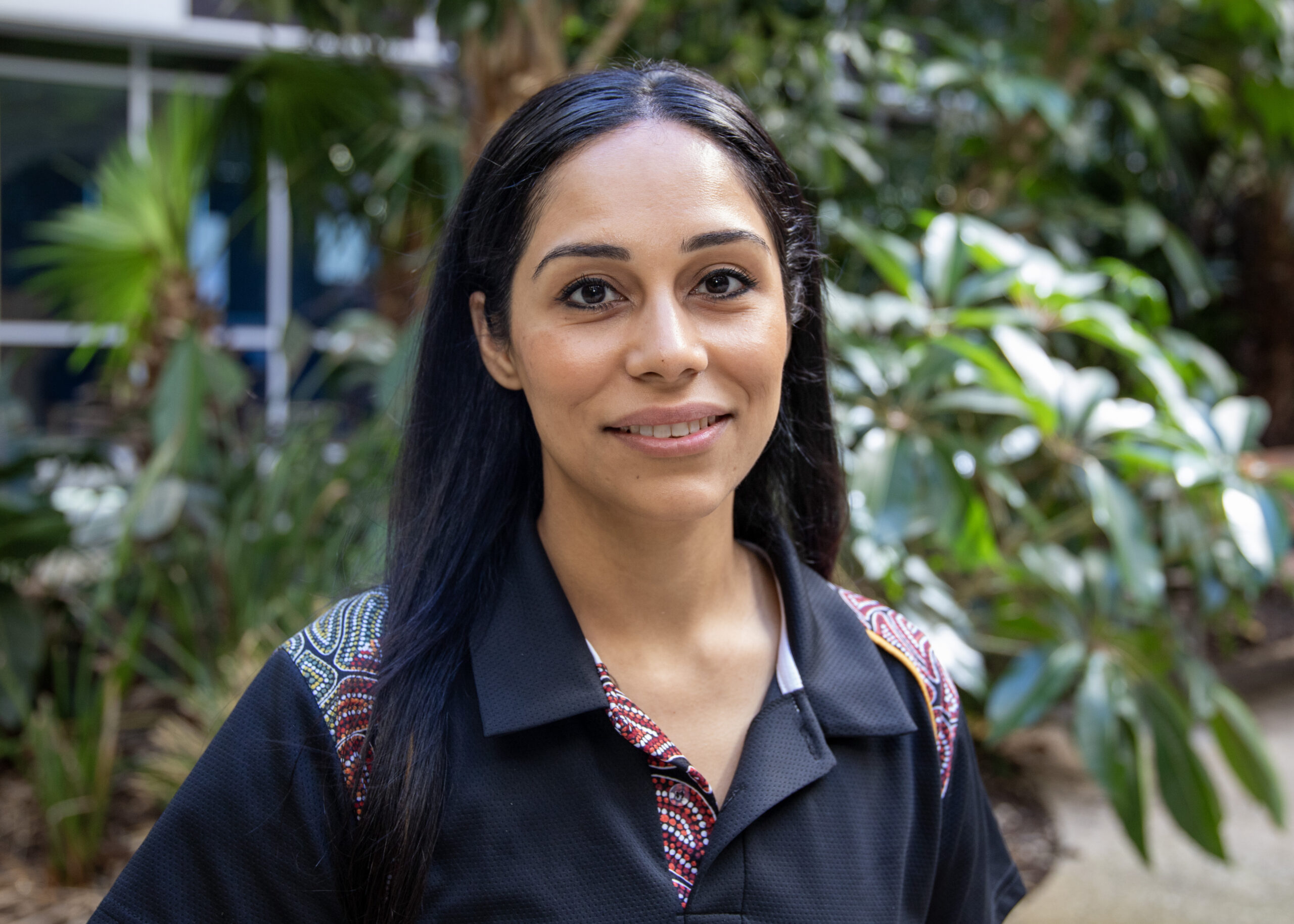For Aboriginal and Torres Strait Islander patients, navigating the healthcare system can be challenging. At Werribee Mercy Hospital, our Aboriginal Hospital Liaison Officers (AHLOs) play a crucial role in providing culturally safe and patient-centred care.
One of our dedicated AHLOs is Ifzah, a proud Yamatji/Badimaya-Baluchi woman who holds a Bachelor of Arts in Social Science.
Ifzah has been with Mercy Health for over a year, bringing her extensive experience from the Department of Justice and the Victorian Aboriginal Child Community Agency. Her role involves providing cultural support, advocacy, and early intervention to ensure vulnerable families receive the care they need.
“I am here to support you and make you feel safe throughout your hospital journey, also making sure you are supported once you are out of the hospital too,” says Ifzah.
Aboriginal and Torres Strait Islander people face significant health disparities, including higher rates of chronic diseases and lower life expectancy. For example, Aboriginal and Torres Strait Islander people are five times more likely to suffer from diabetes and four times more likely to have chronic kidney disease compared to non-Aboriginal and Torres Strait Islander people. Two-thirds of Aboriginal and Torres Strait Islander people have one chronic disease, and one-third suffer from three or more chronic diseases.
At Mercy Health, we are committed to Closing the Gap by ensuring every patient receives the culturally safe, compassionate care they deserve. Ifzah’s work is a testament to this commitment, helping to create a supportive and inclusive environment for all our patients.
Find out more about Aboriginal Programs and support here.




